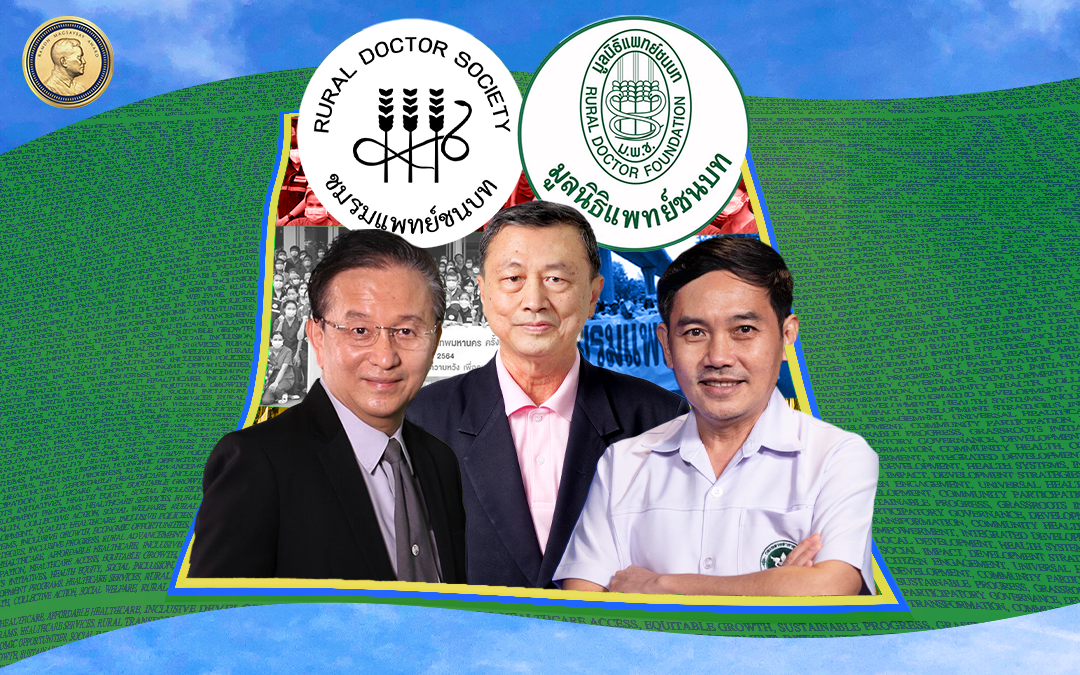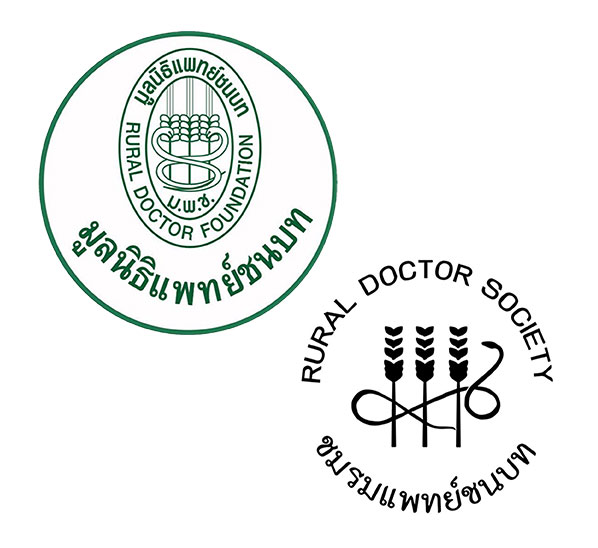- Thailand’s universal health coverage, implemented in 2002 after decades of advocacy by visionary Thai physicians, now provides largely free medical care to citizens, especially benefiting the rural poor.
- The RURAL DOCTORS MOVEMENT (RDM), consisting of the Rural Doctor Society (RDS) and the Rural Doctor Foundation (RDF), emerged as a unified force of Thai doctors advocating for healthcare in rural areas; the RDS operates informally, while the RDF is a formal NGO of doctors in public hospitals.
- The RDM arose from societal changes, including a brain drain of medical professionals to the U.S. in the 1960s, which led the Thai government to require compulsory rural service for doctors; this, coupled with the pro-democracy movement of the early 1970s, inspired many doctors to address rural healthcare inequities and support student-led initiatives in impoverished areas.
- RDS doctors advocate for policy reforms, while the RDF implements progressive healthcare programs through formal channels and collaborates with other NGOs and international agencies, demonstrating the lasting impact of rural doctors on Thai society in promoting healthcare, social justice, and democratic change.
- The RMAF board of trustees recognizes their historic and continuing contribution to their people’s health—and perhaps just as importantly, to their recognition and fulfilment as citizens with basic rights. By championing the rural poor, the movement made sure to leave no one behind as the nation marches forward to greater economic prosperity and modernization.
For many developing countries around the world, universal health coverage (UHC) remains an elusive dream. Poor people living in the countryside are often the most affected, with little or no access to the most basic health services.
For Thailand—now an upper middle-income economy—this is no longer true. UHC was finally implemented in 2002, and it has since been hailed as a system that offers largely free medical care to Thai citizens.
But UHC and other landmark achievements in Thai healthcare did not happen overnight. Rather, they were the result of decades of struggle waged by progressive, visionary, and dedicated Thai physicians in both professional and political arenas to secure adequate and affordable healthcare for their people, especially the rural poor.
Those doctors bonded together in what has since been called the RURAL DOCTORS MOVEMENT (RDM)—a combination of the Rural Doctor Society (RDS) and the Rural Doctor Foundation (RDF). While many doctors belong to both, the RDS is an informal and more flexible organization, and the RDF is a formal NGO comprising doctors working in public hospitals.
The emergence of the RDM reflects the changes and the needs in Thai society, particularly since the 1960s when, as in other developing countries, many Thai medical professionals left for greener pastures in the United States. The resulting brain drain forced the government in 1967 to impose compulsory service for medical professionals in the rural areas in return for their subsidized education. This exposed them to the harsh realities of life in the countryside, making them acutely aware of the need for corrective policies.
At the same time, in the early 1970s, a pro-democracy movement swept Thailand, advocating for greater freedom and socio-economic justice. Many idealistic young doctors joined this movement, seeing in it an opportunity to redress the inequities they saw in Thai society. They organized medical teams for the student protesters, and in 1974, students were sent to the countryside to study poverty and inadequate healthcare.
Their experience and awakening are best expressed by former president of RDS, Vichai Chokevivat, who recalls that “When I was a rural doctor, I saw many people taken ill and becoming almost penniless. They had to sell their farmland or even their daughter to get enough money to pay for their medical treatment. It was such a painful and bitter experience that we dreamt of providing free medical care to the sick.”
In 1978, following the brutal suppression of the student movement, many medical students sought refuge in rural areas, strengthening their ties to their host communities. To be able to continue to operate under the new regime, the Rural Doctor Federation became the RDS. Later still, in 1982, many of the same doctors behind the RDS organized and registered RDF as a formal umbrella for their programs.
Some prominent RDS leaders—among them Chokevivat, Choochai Supawongse, Kriengsak Vacharanukulkieti, Supat Hasuwannakit, and the late Sanguan Nitayarumphong—had activist backgrounds, and the RDS continued to fight for greater civil liberties and against corruption in the 1990s. However, it never lost sight of its main goals: to support medical and public health services in rural areas, disseminate medical and public health information, and boost the morale and spirit of rural doctors.
Through their influence in health governance, RDS doctors continue to advocate for policy reforms. Through the more formal RDF, progressive healthcare programs are implemented more effectively utilizing official channels. The RDF also networks with other NGOs such as those for nurses and pharmacists as well as the World Health Organization and other international agencies.
The impact of the movement on Thai society is clear, palpable, and enduring. Thailand’s rural doctors have demonstrated how vital adequate and affordable healthcare is to social justice, how necessary democracy is in creating the best environment for positive social change, and how the spirit of volunteerism can achieve superlative results.
In electing the RURAL DOCTORS MOVEMENT to receive the 2024 Ramon Magsaysay Award, the board of trustees recognizes their historic and continuing contribution to their people’s health—and perhaps just as importantly, to their recognition and fulfillment as citizens with basic rights. By championing the rural poor, the movement made sure to leave no one behind as the nation marches forward to greater economic prosperity and modernization.
As far as we know, in the 66 years history, the Ramon Magsaysay Award have always been given to individuals or organizations. It is our great honor to be the first movement to receive this recognition.
The Thai Rural Doctors Movement emerged alongside the Democracy Movement of students and citizens in the mid-1960s. During that period, Thailand faced a severe shortage of doctors in rural areas, exacerbated by the brain drain to the United States. Thus, the Ministry of Public Health had to implement a compulsory policy for medical students to work in rural areas for three years after graduation.
This policy made newly graduated doctors face hardships in the rural hospitals. They have begun to unite their efforts to support each other and to provide better healthcare for rural people in the scarcity of resources and disparity in the country. The “Rural Doctor Federation” was established in 1976 for these reasons and re-named as the “Rural Doctor Society” in 1978. Three years later, the “Rural Doctor Foundation” was founded to be the official organization of our movement. This is the beginning of our movement to reform Thailand’s healthcare system.
After the victory of students and citizens in the democracy movement in October 1973 against the military government, we saw the opportunity to improve our society and we pushed one of the articles into the constitution that emphasized the importance of public health, mandating that “the state provide free healthcare to the poor and requiring the state to offer free services for the control and prevention of dangerous communicable diseases.” This provision has remained in every subsequent Thai constitution, despite several coups de’tat.
This provision and the development of the health infrastructure were the crucial foundations that enabled us to establish the Universal Health Coverage system successfully in 2002.
Though the accessibility to health facilities has been improved, we still saw many patients hesitated to get the treatment because they have no money to pay out of pocket. Some of the patients when they have a serious health condition, they ask the doctor to send them back home even though they should be transferred to get better medical treatment. So, the universal health coverage program was our holy grail as it will bring people to the equity of healthcare.
To achieve this, we did the research, set the agenda, and communicated the suffering of sick people to society. We campaigned and created policy advocacy strategies. And when there was the election in 2001. The window of opportunity was opened for us, and the Thai-Rak-Thai party got interested in this policy and put it into their campaign. After the Thai-Rak-Thai government was formed. The universal health coverage policy was implemented.
But the task of our movement was not yet finished. We continue working hard to decrease the resistance, improve the benefit packages, cooperate with health professionals, raise their spirit to work in the underserved areas, and most importantly, be the watchdog for corruption.
Recently, when COVID-19 struck Bangkok, we set up “the Rural Doctors Rescue Bangkok operation” to screen and give treatment in the capital. Our mobilization of rural doctors has helped many urban poor through that hard period.
Our spirit of contributing to the equity of society aligns with the ideology of the late President Ramon Magsaysay, who believed that “those who have less in life should have more in law.”
Ladies and Gentlemen, Working for the people to reduce inequality is a never-ending mission. Receiving the Ramon Magsaysay Award confirms that the Thai Rural Doctors Movement are on the right path and serves as a significant encouragement for us to continue forward. We believe that universal health coverage is crucial, and we would like to see every country make a strong effort to achieve universal health coverage in the near future.
Thank you very much.
Related Articles

Thailand’s Rural Doctors Movement is Among the 2024 Ramon Magsaysay Awardees
Sep 5, 2024

